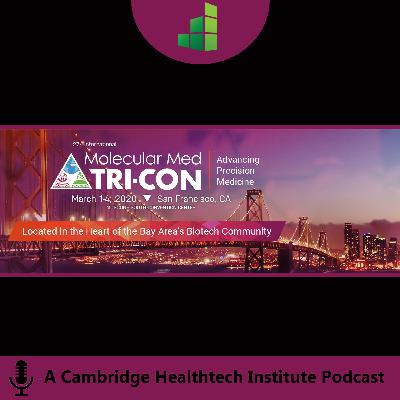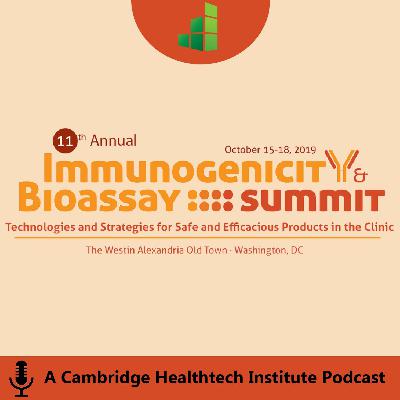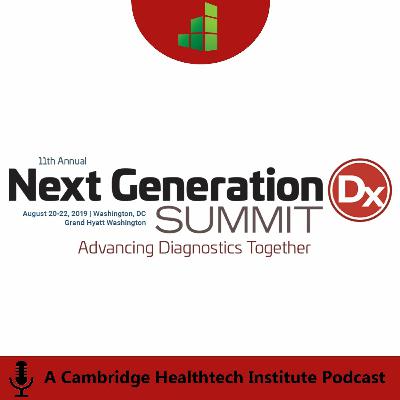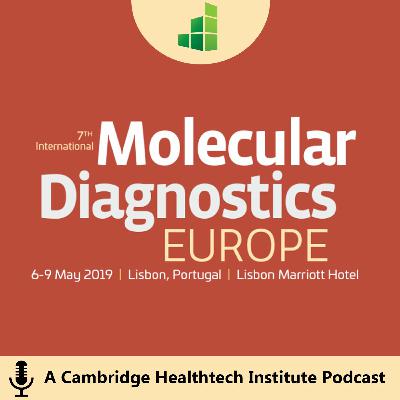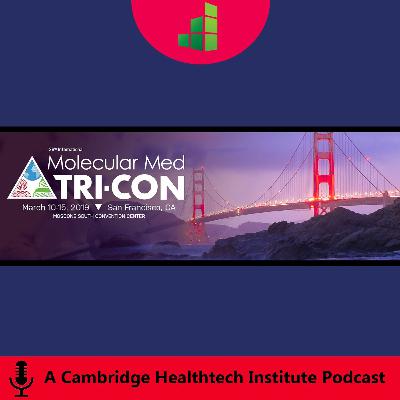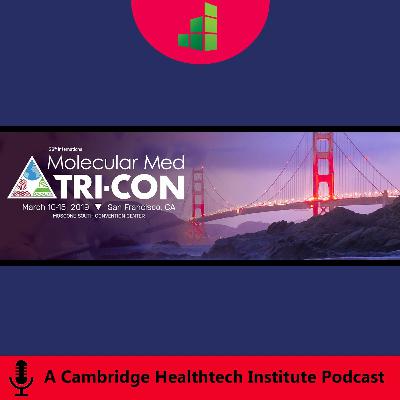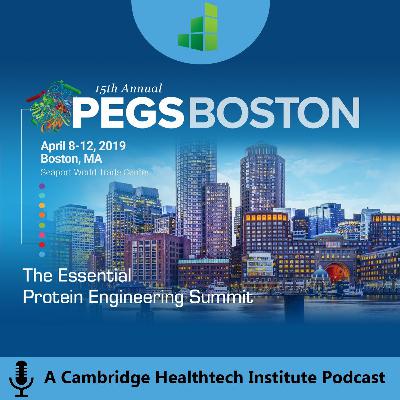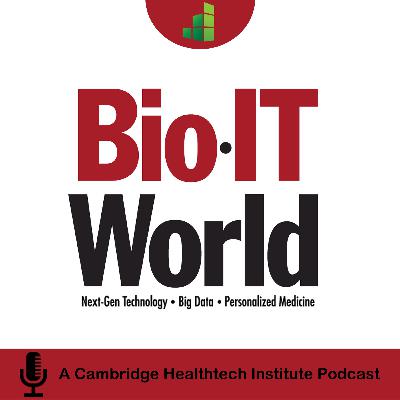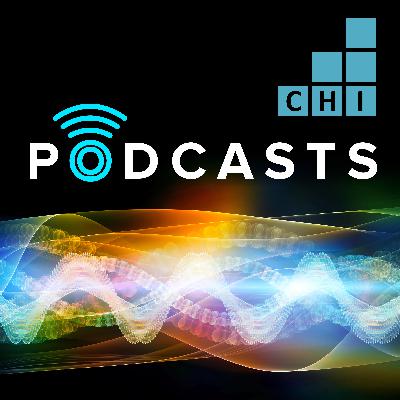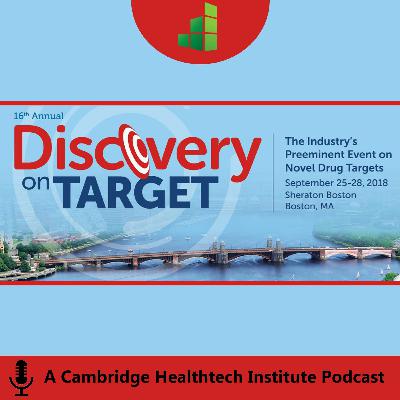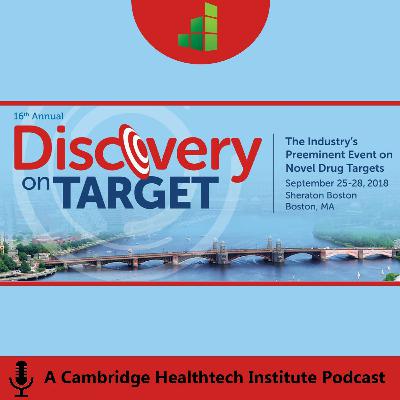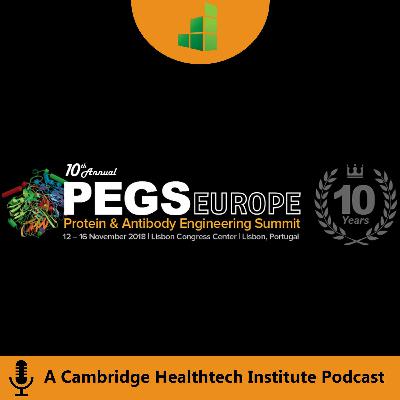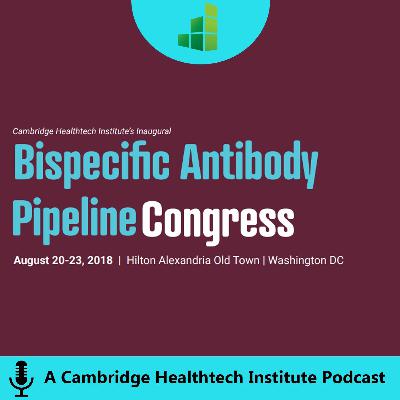Discover CHI Podcasts
CHI Podcasts

255 Episodes
Reverse
Prof. Matthew Lungren shares his stories on how he got to where he is now and where his artificial intelligent inspiration for medicine comes from. He also talks about many great collaborations at the Stanford Center in precision medicine and what he’s looking to see more in this field in the next 5 years.
For more information, please visit https://www.TriConference.com/Precision-Medicine
Gene therapy presents a promising path ahead for patients of rare diseases. The United States Food and Drug Administration’s Director of the Center for Biologics Evaluation and Research, Dr. Peter Marks discusses his work advancing production and availability of gene therapies for rare disorders, and the unique challenges to producing efficacious therapeutics in this field.
For more information, please visit https://www.TriConference.com/Gene-Therapy
Nancy Sajjadi, an independent bioassay quality consultant with over 30 years of experience in biopharmaceutical product development, discusses her history in the bioassay field and how her experience has fostered her passion for teaching biostatistics to non-statisticians with CHI.
Topics include: challenges in developing bioassays for cell & gene therapies, regulatory considerations and standards for bioassays, fostering collaboration between statisticians and bench scientists, and more
For more information, please visit https://www.ImmunogenicitySummit.com/Workshop
Prof. Joshua Krieger from Harvard Business School shares his perspectives on some of the challenges and opportunities in commercialization of diagnostic tests and gives us a preview of his business case study on Genomic Health.
For more information, please visit https://www.NextGenerationDx.com/Commercialization-Molecular-Diagnostics
Samuel Levy of Bluestar Genomics speaks to CHI on March 13, 2019. Dr. Levy will be speaking during The Liquid Biopsy Summit, June 17-19, in San Francisco, CA.
Topics include cell-free diagnostics in precision medicine, transformation & growth in the liquid biopsy field, epigenomic assays for cancer detection, and opportunities ahead.
For more information, please visit https://www.LiquidBiopsySummit.com/Programs
Dr. Konstantinos Mitsakakis explains the One Health approach, and how the pursuit benefits diverse avenues of diagnostic research.
For more information, please visit https://www.MolecularDXEurope.com/Point-of-Care-Dx
Dr. Richard Levenson discusses the role of AI in digital pathology – what works, and what needs to be done for AI to reach its full potential.
For more information, please visit https://www.TriConference.com/Digital-Pathology
Harry Glorikian interviews Niven R. Narain about his approach on how to add more precision to the process of drug development and diagnostic development while engage more reproducibility. Niven also discusses how to use the biomarkers not only as a readout but as a vehicle and an agent to design clinical trials much differently.
For more information, please visit https://www.TriConference.com/Precision-Medicine
Dr. Mark Stewart discusses the role of the tumor mutational burden (TMB) in cancer research and the need for harmonization throughout the process.
For more information, please visit https://www.triconference.com/Companion-Diagnostics
Dr. Jennifer Chadwick shares her journey from academia to industry, and the best advice that got her to where she is today.
For decades, high-performance computing (HPC) has played a crucial role in advancing healthcare. Enabled by techniques like next-generation sequencing (NGS), modern computer systems have helped us understand the biology of disease and helped facilitate the development of newer more effective drugs. While once deployed mainly in research, today HPC is edging ever closer to front-line clinical care supporting advanced diagnostics, genetic counseling, and personalized medicine.
While core bioinformatics applications aren’t going anywhere, modern medicine is increasingly a big data problem as well. Determining the optimal treatment depends on collaboration, the fusion of genetic data with other rich datasets like MRIs, ultrasound images, and population level studies. Increasingly analytics and AI techniques like machine learning are helping healthcare providers sift through massive amounts of data to make better decisions for patients more quickly and efficiently.
For IT organizations, providing a foundation to support this rapid innovation has been challenging. With the need for increasingly specialized hardware, new application frameworks, cost challenges, and the need to share data as never before, institutions are increasingly embracing cloud computing. Univa has played a key role in helping life sciences companies manage diverse workloads on HPC clusters both on-premises and in the cloud. In this Podcast, Univa will discuss how workloads are evolving, share some of the pressures faced by their life-sciences customers, and discuss practical approaches to modernizing IT environments to support the increased variety of applications in the life sciences software ecosystem.
Dr. Bradley Perkins develops a digital platform that can estimate personalized ten year mortality risk. In this podcast, he shares with us what this platform is and how it works to protect and improve the health of individuals and families. In the era of personalized medicine, Dr. Perkins explains what the necessary steps to bring this platform to the general public, gives us other personalized medicine examples and how it will affect the cost of medical care.
For more information, please visit http://www.TriConference.com/Precision-Medicine
A re-upload of a podcast with Sandy Aronson, Executive Director, IT, Partners HealthCare Center for Personalized Genetic Medicine
A re-upload of a podcast with Brian Dixon, MPA, Ph.D., FHIMSS, Assistant Professor, Health Informatics, Indiana University; Research Scientist, Regenstrief Institute; Investigator in Residence, Department of Veterans Affairs
A re-upload of a podcast with Marc Berger, M.D., Vice President, Real World Data & Analytics, Pfizer
Prof. Dai Fukumura gives a preview of his talk, shares some challenges of reprograming tumor microenvironment and what he would like to see more in this field.
For more information, please visit http://www.DiscoveryOnTarget.com/Tumor-Myeloid-Cells/
Dr. Jeffrey Miller shares his experience in NK cell field in the last 20 years, comparing NK cells with T cells and their cost differences along with giving some advice to the young scientists in the field.
For more information, please visit http://www.DiscoveryOnTarget.com/NK-Cell-Based-Cancer-Immunotherapy/
Dr. James Trager shares a preview of his talk at the NK cell-based cancer immunotherapy meeting in Boston, discusses his next step in research and the vision of Nkarta in NK cell therapy development and what he’s looking forward to at this meeting such as the topics of inhibition of MIC protein shedding and NK cell metabolism.
For more information, please visit http://www.DiscoveryOnTarget.com/NK-Cell-Based-Cancer-Immunotherapy/
Dr. Florian M. Wurm, Swiss Federal Institute of Technology Lausanne (EPFL) and ExcellGene SA speaks to Cambridge Healthtech Institute on 9 July 2018. He will be the keynote presenter during the Optimising Expression Platforms conference at PEGS Europe, 12-16 November 2018 in Lisbon, Portugal.
For more information, please visit http://www.PEGSummitEurope.com/Optimising-Protein-Expression
Topics Questions Include:
Let's talk about transient protein expression. What advances do you foresee in this approach for enabling efficient engineering and expression of therapeutic proteins in the next decade?
What potential solutions seem promising for some … challenges?
Are there promising glimpses into using transient protein gene expression for clinical use today?
You'll be discussing “Transient Protein (Gene) Expression: From R&D towards Pharmaceutical Manufacturing” during your keynote presentation on 14 November. What's the main theme you'd like to convey to your audience of protein engineers and researchers?
Dr. John Haurum shares his perspective on the future of bispecific antibodies in the next 5 years, common myths about immune system activation using bispecifics and some novel compounds inside and outside of IO fields that he’s looking forward to the most at the Bispecific Antibody Pipeline Congress.
For more information, please visit http://www.BispecificAntibodyCongress.com/Bispecific-Antibody-Clinical-Relevance



